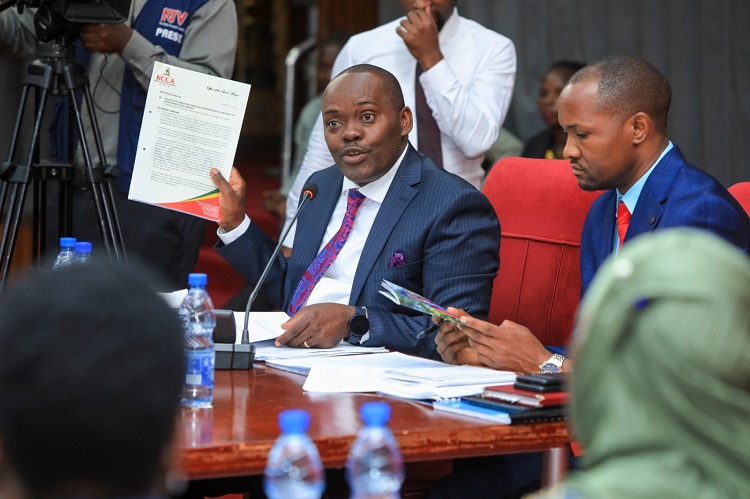The leadership of Kampala Capital City Authority (KCCA) has announced that the 135 acres of land in Ddundu Parish, Mukono District, designated for waste management, is currently undergoing initial works for the establishment of a waste-to-energy facility.
According to KCCA Executive Director, Dorothy Kisaka, preliminary studies such as technical assessments, soil analysis, and groundwater tests to guide the size and design of the waste incineration infrastructure have been completed.
“The land is legally owned by KCCA, with all required documentation and title deeds secured. It was acquired in 2016 at a cost of Shs5 billion after thorough due diligence and negotiations,” Kisaka explained.
She made these statements during her appearance before the Committee on Commissions, Statutory Authorities, and State Enterprises (COSASE), where she addressed concerns raised by MPs about the Kiteezi landfill collapse and general waste management in Kampala and the surrounding metropolitan areas.
Minister for KCCA and Metropolitan Affairs, Hon. Minsa Kabanda, along with Deputy Lord Mayor, Doreen Nyanjura, also attended the meeting held on Thursday, September 5, 2024.
Kisaka mentioned that the land in Ddundu was initially acquired with the intention of building a regional waste management facility to replace the Kiteezi landfill. However, only two acres have been used by the Ministry of Health to establish a medical waste incineration plant.
She further noted that both the leadership and local community in Mukono have not been supportive of the intended use of the land.
“A significant number of opinion leaders in the area filed a lawsuit against KCCA, preventing progress with the plans to tackle Kampala’s waste management issues using the site. Nevertheless, ongoing dialogue is being pursued to resolve any concerns and ensure the community benefits from the project,” Kisaka said.
In her report on solid waste management in Kampala, the Deputy Lord Mayor pointed out that KCCA has only 12 garbage trucks, which she said are insufficient to collect waste from the 60 percent of Kampala’s population residing in informal settlements.
“For the past decade, not a single garbage truck has been procured, except for a few trucks donated by the LVEMP program. Our [KCCA] fleet has drastically reduced from 48 trucks to 12, which are in poor condition,” Nyanjura stated.
She also discussed KCCA’s collaboration with the private sector to implement waste collection models that cater to low-income communities, including those in areas such as Kisenyi.
“However, the existing private companies responsible for waste management in Kampala have limited capacity to collect and transport waste, which has hindered the efficient management of the city’s waste,” Nyanjura added.
Kisaka and Nyanjura urged the government to expedite the approval of the waste-to-energy plant at the Ddundu site, along with the necessary licensing by various regulatory agencies.
“Constructing a modern recycling plant will enable KCCA to move away from the outdated and unhealthy practice of relying on dumpsites,” Nyanjura remarked.
Committee Chairperson, Hon. Medard Sseggona, criticized the disconnection between the political and technical teams of KCCA in managing the Kiteezi landfill crisis.
“How can the technical team meet with the Chief Executive of the country without involving the political team? In the face of this disaster, you should be working together. How do you expect to address a crisis when you are divided?” Sseggona questioned.
He instructed KCCA’s leadership to provide the committee with details regarding the investor expected to manage the Ddundu waste treatment and disposal site.



